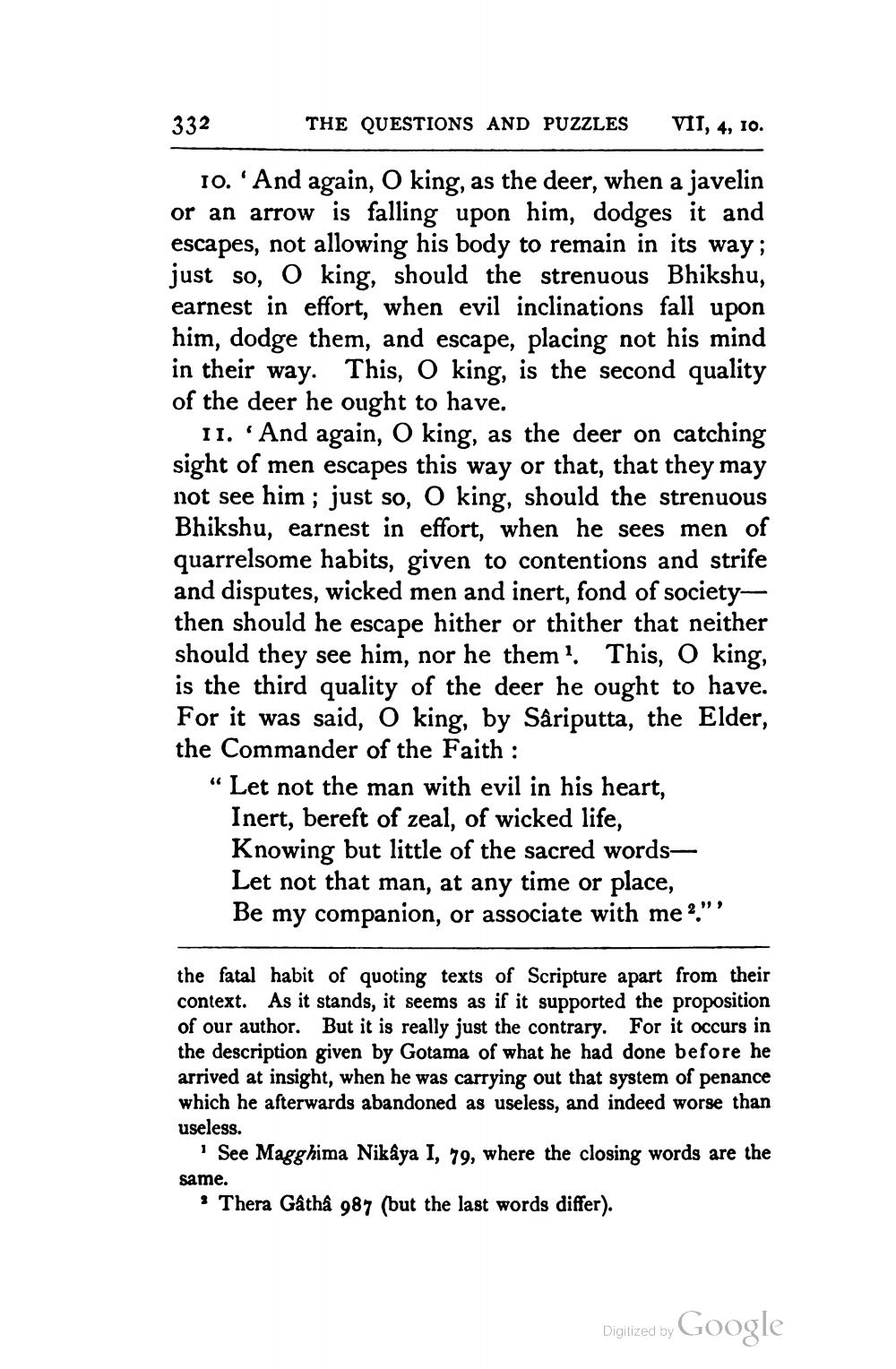________________
THE QUESTIONS AND PUZZLES
VII, 4, 10.
10. 'And again, O king, as the deer, when a javelin or an arrow is falling upon him, dodges it and escapes, not allowing his body to remain in its way; just so, o king, should the strenuous Bhikshu, earnest in effort, when evil inclinations fall upon him, dodge them, and escape, placing not his mind in their way. This, o king, is the second quality of the deer he ought to have.
11. 'And again, O king, as the deer on catching sight of men escapes this way or that, that they may not see him ; just so, O king, should the strenuous Bhikshu, earnest in effort, when he sees men of quarrelsome habits, given to contentions and strife and disputes, wicked men and inert, fond of societythen should he escape hither or thither that neither should they see him, nor he them? This, o king, is the third quality of the deer he ought to have. For it was said, O king, by Sariputta, the Elder, the Commander of the Faith : “Let not the man with evil in his heart,
Inert, bereft of zeal, of wicked life, Knowing but little of the sacred wordsLet not that man, at any time or place, Be my companion, or associate with me ?."'
the fatal habit of quoting texts of Scripture apart from their context. As it stands, it seems as if it supported the proposition of our author. But it is really just the contrary. For it occurs in the description given by Gotama of what he had done before he arrived at insight, when he was carrying out that system of penance which he afterwards abandoned as useless, and indeed worse than useless.
See Magghima Nikâya I, 79, where the closing words are the same.
• Thera Gâtha 987 (but the last words differ).
Digitized by Google




